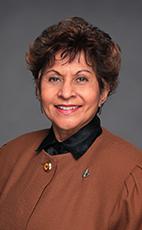Mr. Speaker, I am pleased to participate in this debate on Bill C-260 sponsored by the hon. member for Haute-Gaspésie—La Mitis—Matane—Matapédia.
It is a source of great pride for Canadians that Canada plays an important role on the international stage. Canada's initiatives in such diverse fields as human security, peacekeeping, international development and other areas are too numerous to mention and have earned this country a reputation that is second to none. For example, in recent years Canada played a leading role in the negotiation and ratification of the Rome statute of the International Criminal Court.
A key factor in Canada's ability to play this important role is the effectiveness of Canada's national government's treaty-making practices. The negotiation and conclusion of treaties, both multilateral and bilateral, lie at the heart of international cooperation and conduct of foreign affairs. We Canadians are proud of the role that the federal government has played in these multilateral and bilateral agreements that have helped many countries in the developing world.
The modern era of international relations is marked by the ongoing effort to create legal frameworks in the form of treaties that bind states and provide a structure for the international legal order.
In this context, a good treaty-making system is essential if Canada is to conduct its foreign policy effectively to the benefit of all Canadians. When one reads Bill C-260, one is led to believe that there is some doubt about Canadian practices with regard to the conclusion of treaties, but this is not the case. Our current practices, with their flexibility and capacity to respond to change, already enable us to meet our objectives while recognizing the essential role of Parliament in implementing treaty obligations.
While Canadian constitutional law clearly establishes that the negotiation of a treaty and signatory of a treaty are strictly in the purview of the federal executive, it is essential to remember that the legislative branch plays a considerable role in our treaty process. Indeed, only Parliament can change the current laws or enact new ones which allow for implementation of treaties.
In the absence of such participation, Canada would not be able to meet its international obligations. Not only is Parliament actively involved in the implementation of treaties but consultation on our most important treaties now takes place before committees and prior to the government taking binding action.
In fact, our current practices strike a careful balance between the constitutional power of the executive to make treaties and the crucial role of Parliament in implementing them. Our practice provides for flexibility and efficiency. As a general rule, the federal government would not be in a position to ratify a treaty if it were not reasonably sure that the obligations imposed by the treaty would be implemented by Canada.
For this reason, when Canada wants to ratify a treaty involving obligations within provincial jurisdictions, the federal executive consults the provinces and territories. It should be underlined that the federal government has been consulting provinces for almost 70 years on treaties.
Moreover, it should also be noted that the representatives of provinces and territories often join Canadian delegations participating in negotiations on treaties involving matters within provincial and territorial jurisdictions to reflect provincial and territorial views and interests.
In today's challenging international environment Canada must have a treaty-making process that allows it to achieve its foreign policy objectives and to deal quickly with changing and urgent situations. Canada's current practices in this area, with their flexibility that I referred to earlier, meet these imperatives.
Apart from its other flaws, Bill C-260 provides for an overly complex and inefficient procedure for federal-provincial consultations to replace a treaty-making process that for many years has served Canada and all Canadians well.
Canada's effectiveness on the international stage offers ample proof that the current constitutional balance in treaty-making measures and treaty implementation, and the well established practices are best suited to the needs of Canada and work to the benefit of all Canadians. Hence, I would not support Bill C-260.

